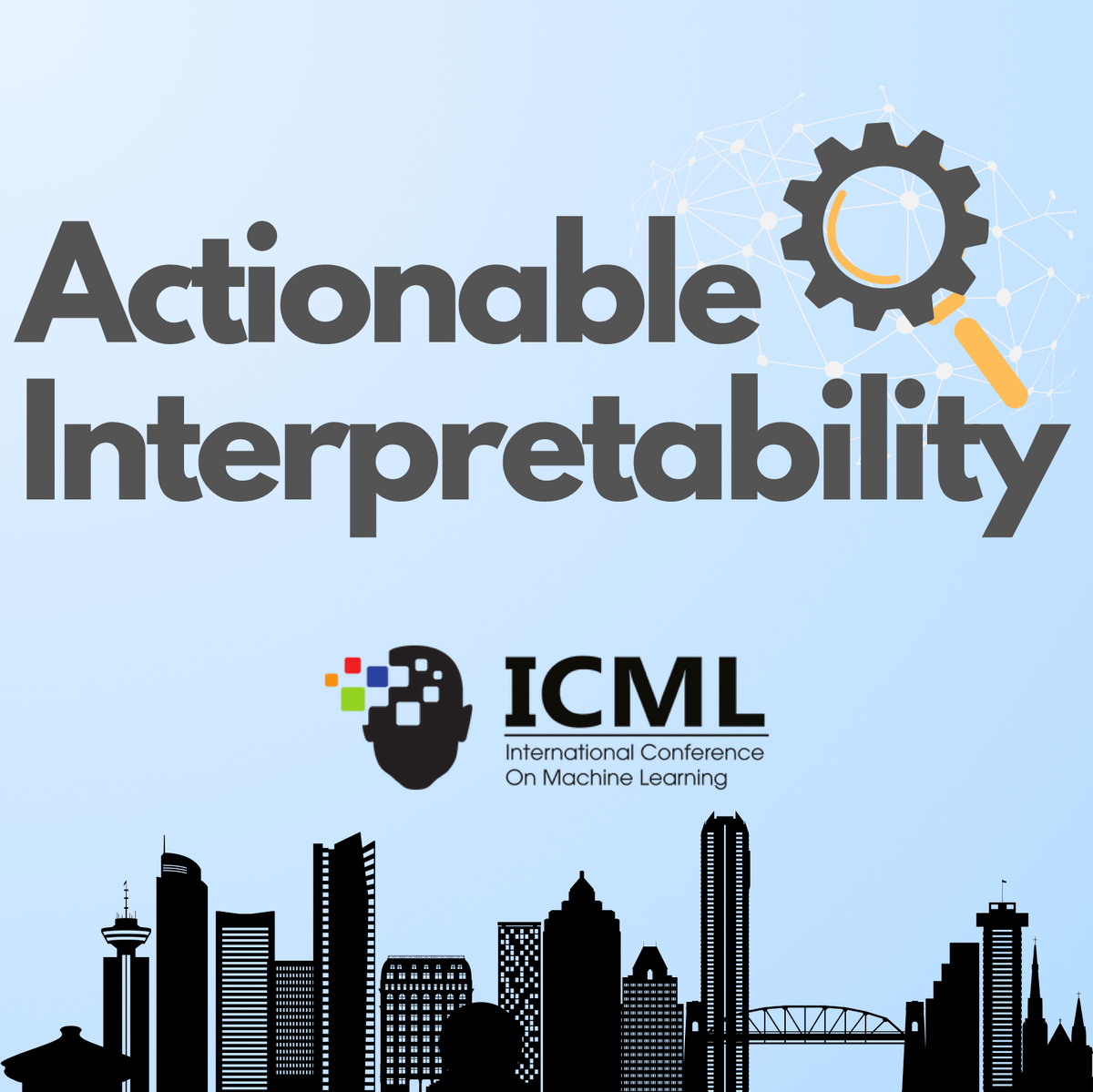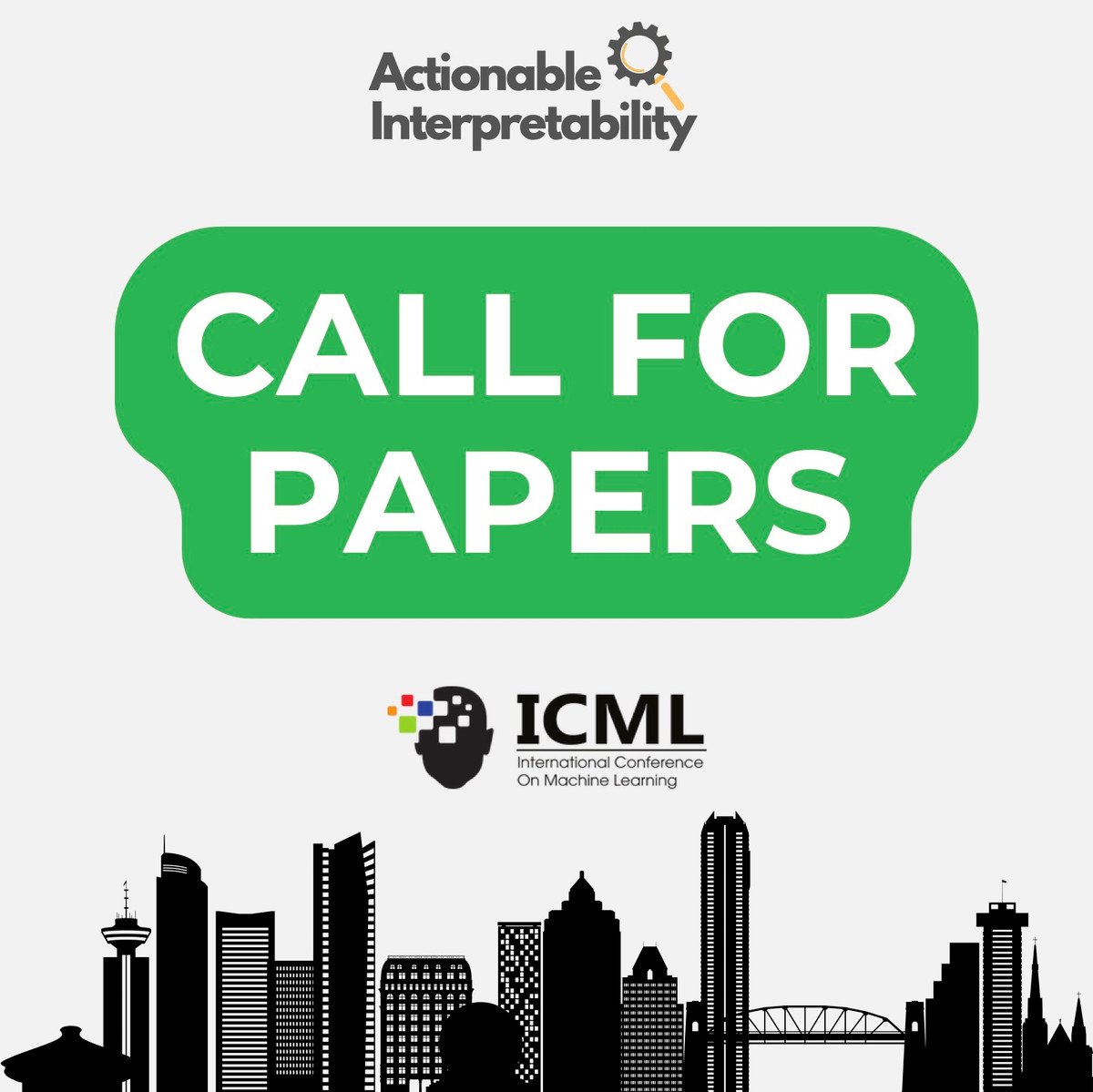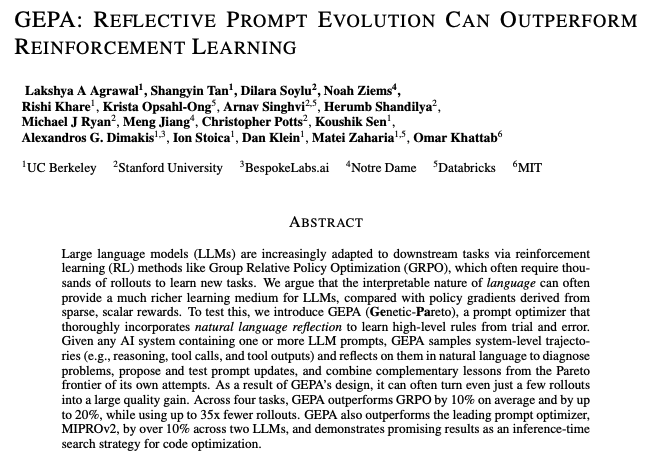
Zachary Bamberger @NAACL2025
@zacharybamberg1
(🇺🇸/🇮🇱) PhD @TechnionLive (advised by @ofraam and @amir_feder). BSc @CornellCIS, MSc @TechnionLive (advised by @boknilev). Xoogler. Persuasive Arguments
ID: 1183101225337647105
https://zachary.cswp.cs.technion.ac.il 12-10-2019 19:24:58
383 Tweet
314 Takipçi
817 Takip Edilen




🎉 Our Actionable Interpretability workshop has been accepted to #ICML2025! 🎉 >> Follow Actionable Interpretability Workshop ICML2025 Tal Haklay Anja Reusch Marius Mosbach Sarah Wiegreffe Ian Tenney (@[email protected]) Mor Geva Paper submission deadline: May 9th!


🚨 Call for Papers is Out! The First Workshop on 𝐀𝐜𝐭𝐢𝐨𝐧𝐚𝐛𝐥𝐞 𝐈𝐧𝐭𝐞𝐫𝐩𝐫𝐞𝐭𝐚𝐛𝐢𝐥𝐢𝐭𝐲 will be held at ICML 2025 in Vancouver! 📅 Submission Deadline: May 9 Follow us >> Actionable Interpretability Workshop ICML2025 🧠Topics of interest include: 👇






New paper: Reflective Prompt Evolution Can Outperform GRPO. It's becoming clear that learning via natural-language reflection (aka prompt optimization) will long be a central learning paradigm for building AI systems. Great work by Lakshya A Agrawal and team on GEPA and SIMBA.







